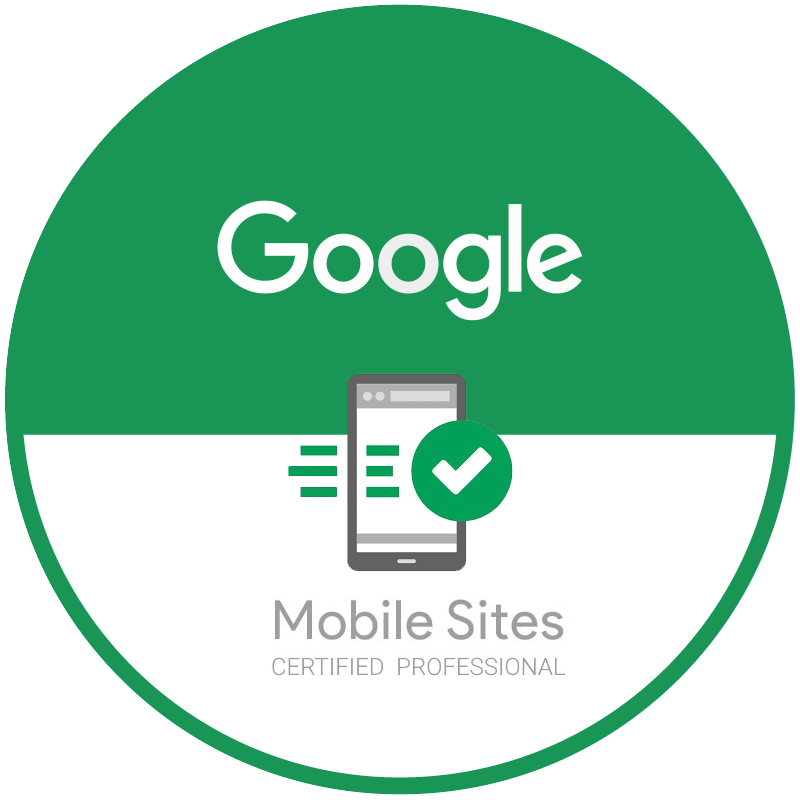![]() Omar Trujillo | December 1, 2021
Omar Trujillo | December 1, 2021
Choosing the right domain name is one of the first steps to creating your online presence. It is also one of the most important decisions you’ll need to make, because with it you are determining the path of your business presentation.
Choosing a domain is similar to choosing a company name; it requires time to reflect on and consider many options. Your domain is the identity of your website, and you have to make sure that your domain not only suits your business, but that it is also easy to find and promote.
Here’s some the tips to help you find the perfect domain for your business:
Easy to type
Finding a domain name that is easy to type is critical to your online success. If you use jargon or words with different spellings (such as xpress or xtreme), it may be more difficult for customers to find your website. That being said, it could be used your advantage, if your domain isn’t available and if you make it very obvious in the rest of your graphic communication. For example, if your logo has a giant “X” in it.

Keep it short
If your domain is long and complex, you may run the risk of your customers misspelling it. So the shorter the better.
Avoid numbers and hyphens and special character
This is not a hard rule, as there are a lot of very successful domains that break this rule, but usually domains that contain numbers and hyphens often cause confusion and errors. When people hear the address of your website, they don’t know if they have to type the number (1) or if they have to type it (one), or if there is a hyphen or not. If you need your domain to have a number or a hyphen, it would be a good idea to register the different variations of it just to be sure.
Easy to remember
There are millions of registered domains, so having a domain that is catchy and easy to remember is essential. Once you have the name, give it some time to settle down and share it with your friends and colleges to see if it sounds appealing to them and if it provides an accurate depiction of your project or business.
SEO Compelling
Alright, all the above tips are very good and all that, but to be honest they are a tad obvious. The real question would be – are they really that important to SEO? Well, as it turns out not so much… And we are going to uncover it (here’s the real meat and potatoes!).
Search engine optimization (SEO) is not an exact science. In SEO a marketing expert has to make decisions and go through different paths, using experience and knowledge, and achieve similar results.
There are times when an obvious decision is not the most optimal of all, but this can be compensated with many other factors which, in the end, lead you to accomplish the same objectives.
That’s what SEO is about, and with the domain name, we are going to start to confirm it.
What can I use as a blueprint to choose my domain?
Glad you asked, my young Padawan! The time has come to tell you about what I call the KLB recipe, which consists of three ingredients:
- Keyword
- Local
- Brand
With these three ingredients, one of them, or with the combination of two or all three, we can generate many domain names that will help us attain what we are looking for.
But, first of all, ask yourself… What do you want to obtain with your website?:
- Organic traffic by keywords?
- Make a mark?
- Position a local business?
What you want to obtain, your goal, must be reflected in the name of your domain.
Keyword Domains
Include in the domain the keyword for which you want to position yourself within a sector or niche. With this, you are already telling your users and Google what your website is about.
Let’s say that you want to sell jeans. In that case the perfect domain for you would be jeans.com or jeansretail.com, which will include the keywords “jeans” and “retail.” (Get off my back I know those domains are already taken, but bear with me for a second I am making a point.)
Domains by Local Positioning
Now you would include a city, region, etc. in the domain name.
This makes sense if you have a local business or provide a service to a certain geographical area, since you will be indicating to your users and Google that the activity is geolocated.
Let’s say that you offer your jeans only in Canada, so the domain could end up being jeanscanada.com.
Brand Domains
Include the name of your brand, business, product or own name if it’s a personal brand. In this case, it would be something like abc.com.
This tells users and Google (or Bing if you are into that thing) the website address for that specific brand, without further adieu.
Get ideas for choosing the domain
And now is when things get interesting…
You can play with the three ingredients to get different domains.
- Example 1: a domain with brand and keyword
Let’s take this domain as an example: abcjeans.com.
As discussed earlier, this domain includes a keyword and the brand name. So… could you be interested in including the keyword “cheap” in your domain? Could your domain be abccheapjeans.com?
It could, but would it give you something? Not really. Why? Because “cheap” is a very competitive word and EDM (Exact Match Domain) does not contribute in a practical way to anything when it comes to keywords or sectors with very high competition.
All you would be doing in choosing this domain would be dirtying your brand domain. It doesn’t make sense for the few or zero benefits you’re going to get.
- Example 2: branded domain and long tail keyword
Let’s say now that you choose a long-tail keyword, such as “jeans experts.” The domain name could be “abccheapjeansexperts.com.”
This might make sense because “jeans experts” is already a keyword with slightly less competition and this might help you a bit to push your domain in Google search results for that search.
But, at the same time, we are making the domain name longer so that is also something to consider.
- Example 3: keyword domain and Local SEO
Another combination, in this case including a keyword and geolocation would be jeanscanada.com. Is this domain good?
This domain would be good if you wanted to position your homepage for “jeans in Canada.” Having the keyword and geolocation in the domain name would help.
But, if that were the case, the primary goal would no longer be the brand, so you would no longer include the brand name and doing so will result in a domain name that is excessively long and would be totally dirtying the brand.
That is why it is so important to determine what the objective is so it can be reflected in the domain. If the prime objective were to position the business as a jeans shop in Canada, I would directly bet on jeanscanada.com.
The key: Prioritize your Goal
Many combinations can be created when choosing the domain of a website, but you should always keep your goal in mind:
- If the goal is to get traffic, let the keyword rule
- If the goal is Local SEO, let geolocation rule
- If the goal is to make a brand, let the brand name rule
So again: SEO is not an exact science, you must define your criteria, and although sometimes you do not opt for the most apparent, optimal solution, this does not mean you cannot get the results you are looking for in other ways.
What do I do if I want to use my keyword but the domain is already taken?
If you want to use your keyword in your domain but the name is already taken (as happens with a large majority of keywords unless they are long tail) you can use suffixes.
For example, if your keyword is “face creams” but all the domains with this keyword are taken: with .com. with .net, with hyphens, without hyphens, etc., relax you’re covered.
You can use the keyword and then add a suffix to it, such as “vip,” “pro,” “blog,” a number… whatever comes to mind. And that will not affect that little bonus that the exact keyword domain can bring you.
An additional tip: if you are going to use a keyword in your domain, try to put that keyword at the top.
Also, you can try the other extensions.
Extensions are suffixes at the end of web addresses, such as .com or .ca.
These extensions can have specific uses, so be sure to choose an extension that works well for your business.
The most popular extensions are:
- .com: an abbreviation for the company, trade, and community
- .info: informational sites
- .net: technical Internet infrastructure sites.
- .org: non-commercial and non-profit organizations
- .biz: business or commercial use, such as e-commerce websites
- .me: blogs, resumes or personal sites
Also, there are a plethora of new extensions that may suit your goals, such as:
- .ninja
- .io
- .academy
- .tv
- .art
- .live
- .store
- .club
- Among a long list of others
When picking the perfect domain, take it slowly, be creative and enjoy your search. Happy domain hunting!
Having trouble finding a domain name for your business website?
Contact us!


